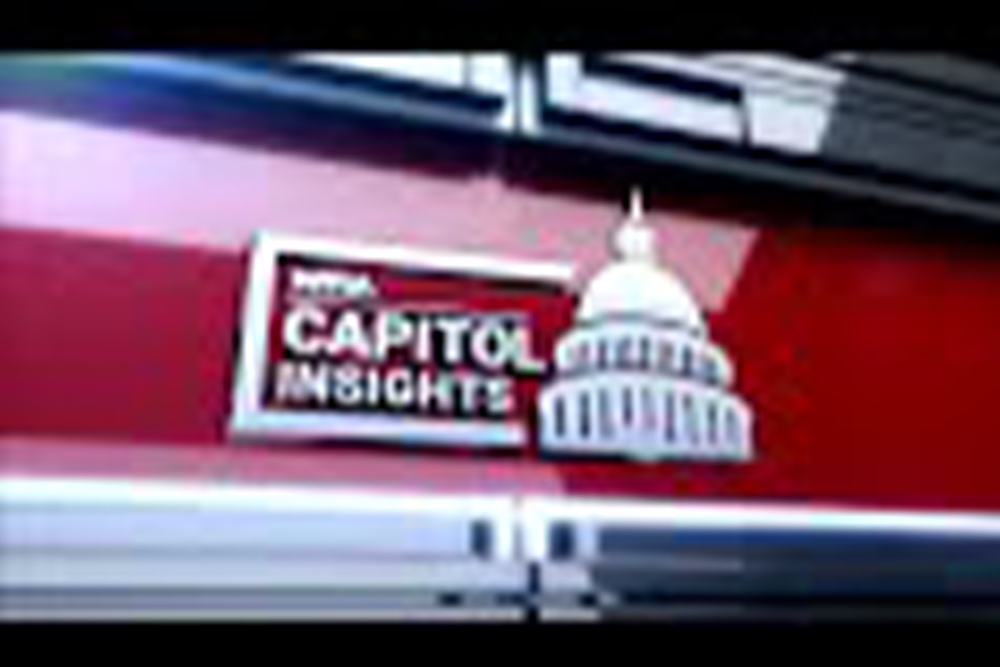Holding the Line on Property Taxes
Resources

Capitol Insights
Ep. 28

The property tax is the single highest tax in Wisconsin. In fact, the Badger State has one of the highest property tax rates in the country.
Property taxes affect the affordability of homes and the profitability of businesses. As property taxes increase, job growth and the affordability of homeownership in Wisconsin decreases.
Unfortunately, Wisconsin relies too heavily on property taxes to fund local governments, schools, and technical colleges.
Since 2011, Wisconsin has successfully controlled property tax increases by placing strict levy limits on municipalities and counties. Prior to this time, property taxes on a typical home increased by approximately 27% in the prior decade, with some annual increases reaching 4 to 5%.
Now is the time to hold the line on property taxes and keep the current levy limits in place to allow taxpayers to decide if they want to raise their own property taxes. Wisconsin must provide new ways in the future to fund local governments, schools, and technical colleges.
Placing a greater burden on property owners is not the answer.

Eliminating the Personal Property Tax
Most property owners receive one property tax bill annually, but many business owners, receive two tax bills — one tax bill for their home and land and a second tax bill for their personal property, including furniture, fixtures, tools, and other business-related items.
The yearly process of calculating the amount of personal property taxes owed requires an understanding of what personal property is taxable, and then establishing the value of those taxable items. This process can be time consuming, frustrating, and expensive.
Wisconsin’s personal property tax is riddled with exemptions, and the $202 million it generates today is a tiny fraction of the $1.2 billion collected in 1971. This onerous and exclusive tax on small business owners should be eliminated.
The personal property tax is unnecessary. The personal property tax was instituted in the 1830’s and was the primary source of funding for territorial government before statehood. At the time, Wisconsin had no sales or income tax. Today, we have both sales and income taxes, and the personal property tax unfairly targets a small portion of the population.
Since its inception, the personal property tax has been amended a total of 14 times to exempt different kinds of personal property. Over the past 100 years, state lawmakers have discussed eliminating the personal property tax. The WRA fully supports the elimination of this tax and, hopefully, this is the year it happens.
Alternatives to Funding Local Government
According to the U.S. Census Bureau, in 2017-18, the property tax made up 68.2% of local government tax revenues in Wisconsin.
In addition, Wisconsin property owners pay among the highest property tax rates in the country. According to the Wisconsin Department of Revenue, the Wisconsin property tax is the single largest tax in the state with property owners and businesses paying $11.2 billion in 2019.
Counties and local municipalities argue that additional state funds are critically important to help local government deliver high quality core services. With no increases in state shared revenue funding since 2011 and local levies frozen over the same time, core services such as public safety have been cut and other priorities put on hold. Local officials point to the need for alternative sources of revenue from the local property tax to fund local services.
The WRA agrees that proper funding of local government is a necessity, and this responsibility should not be placed solely on the backs of property owners.
The following are some proposed solutions to help fund local governments without adding to the tax burden of property taxpayers.
Referenda Reform
For the last decade, Wisconsin lawmakers have saved Wisconsin property owners more than $3.5 billion by having this strict levy limit in place. Thus, putting control over property tax increases in the hands of voters through referenda. Many of these referenda are passed with a very small voter turnout.
Currently, referenda can be filed in most municipalities after a simple majority vote of the local governing body. In smaller localities, referenda can be approved to be placed on the ballot at a town meeting with a voice vote.
Today, most referenda votes can be held during almost any election. This means that low turnout elections with referenda on the ballot can have a dramatic effect on your property taxes.
The WRA supports a number of possible reforms to the referenda system to increase transparency and fairness around the process.
With a near record of 166 referendums filed in 2022, and an almost 80 % rate of passage, referenda should only be placed on the ballot during fall elections, when the majority of voters will be participating in their civic duty. This is the only fair way to ensure that property owners are directly involved with a potential increase in their property taxes.
Eliminate so-called recurring referendums for operating expenses — those that raise taxes indefinitely — and cap non-recurring referendums at five years. Voters should not hang unending property tax hikes on the community during a single vote. Referenda such as these put a tremendous amount of financial responsibility on the backs of property owners at a single time, without an opportunity to revisit the need for the expenditure. If the need continues to exist, the voters should decide on a regular basis and return to the ballot box and adjust when necessary.
Limit when school districts can decide to go to referendum. A school board could vote on an operating referendum only during a regularly scheduled board meeting, and on a debt issue only at the annual meeting where the tax levy is set.
The WRA supports making the referenda process fairer and transparent so that the majority of property owners are fully aware of the property taxes that may come at the local level.
3.5 Billion Dollars Saved from Tax Freeze
6th highest property tax rate in U.S.
7th Least Friendly Tax State for Retirees
Resources

Capitol Insights
Ep. 28
